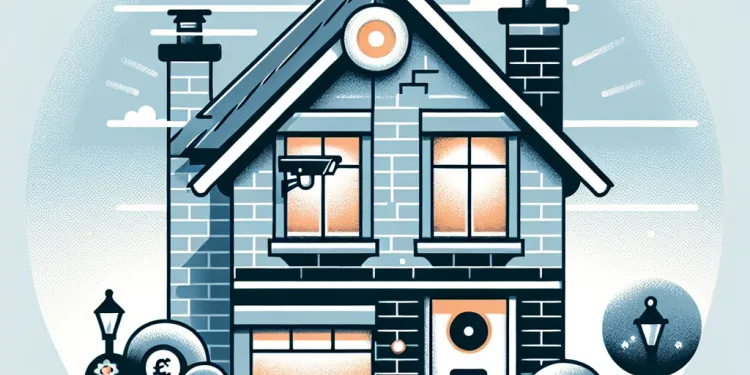
Find Help
More Items From Ergsy search
-
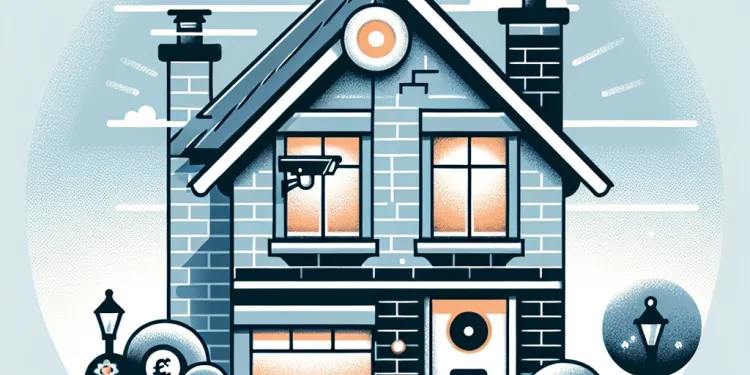
Do neighbours need to inform me if their cameras record my property?
Relevance: 100%
-
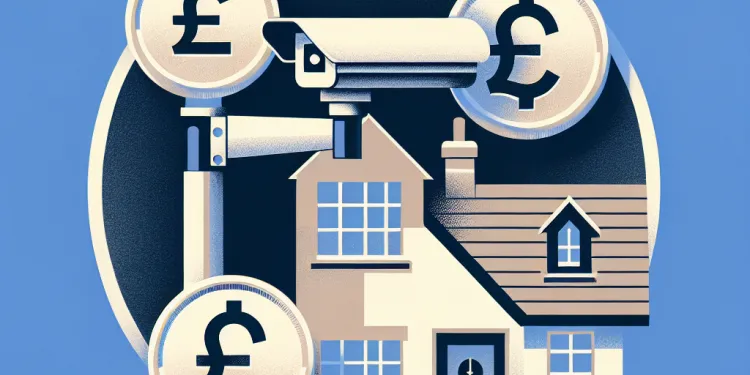
What if my neighbor claims the camera is for security but it points towards my property?
Relevance: 83%
-
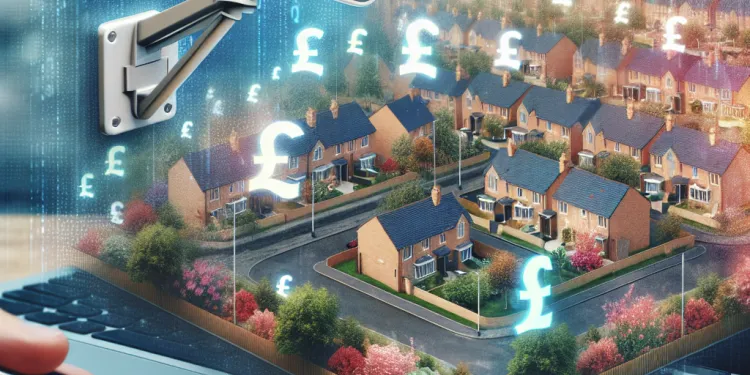
Is it legal for my neighbor to have a security camera facing my property?
Relevance: 81%
-
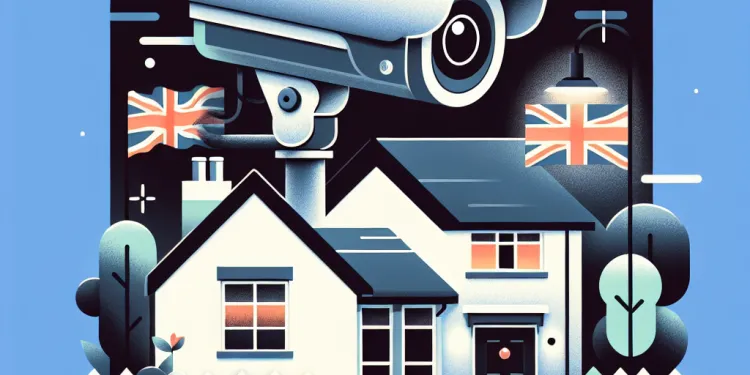
What should I do first if my neighbor's security camera is pointed at my property?
Relevance: 80%
-
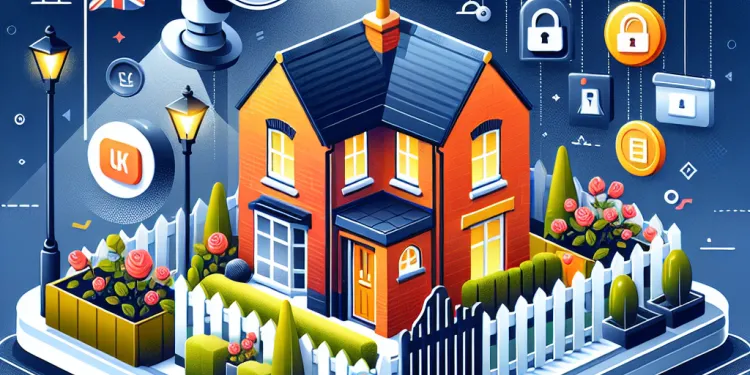
How can I stop my neighbour's security camera pointing at my property?
Relevance: 80%
-
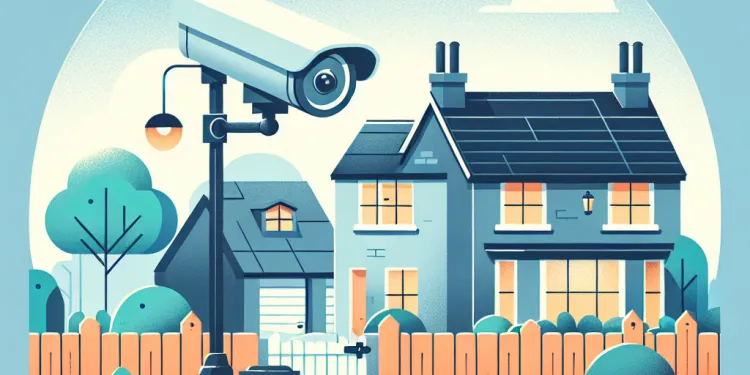
Can my neighbour legally point a security camera at my property?
Relevance: 80%
-
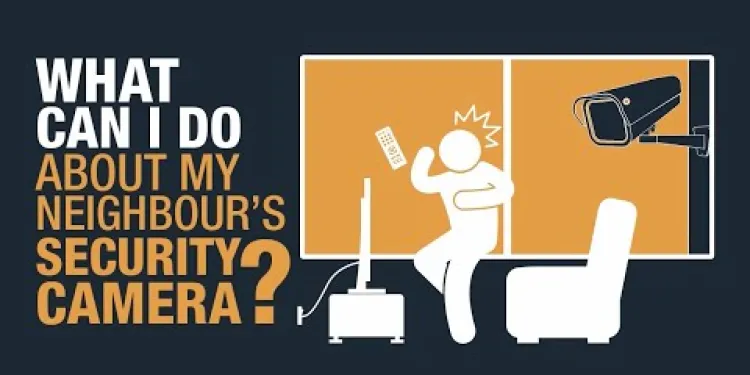
What can I do about my neighbour's security camera?
Relevance: 73%
-

Can I ask my neighbour to reposition their security camera?
Relevance: 72%
-

Is it legal for me to block the view of my neighbour's security camera?
Relevance: 72%
-

What can I do about my neighbour's security camera?
Relevance: 71%
-

Are there privacy laws that protect me from neighbor's cameras?
Relevance: 70%
-
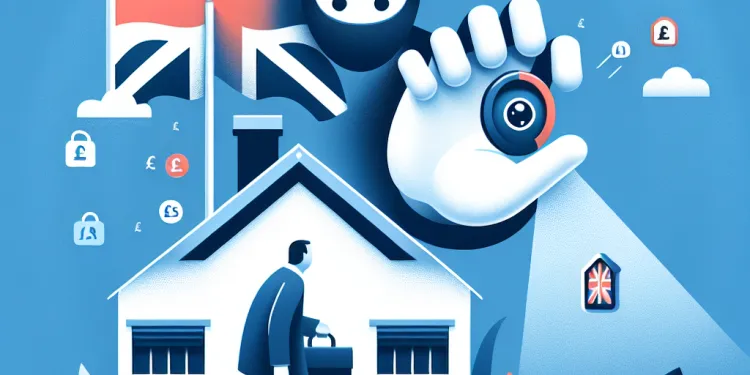
Can I ask for legal help to get my neighbor’s camera moved?
Relevance: 66%
-

Can I block the view of my neighbor's camera with physical barriers?
Relevance: 66%
-
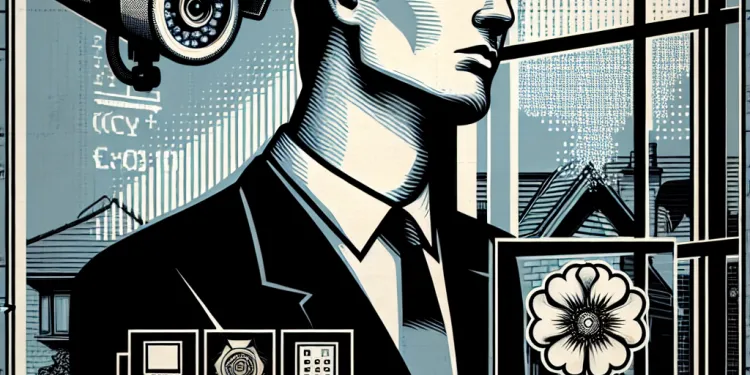
Should I contact the authorities if my neighbor refuses to adjust their camera?
Relevance: 65%
-
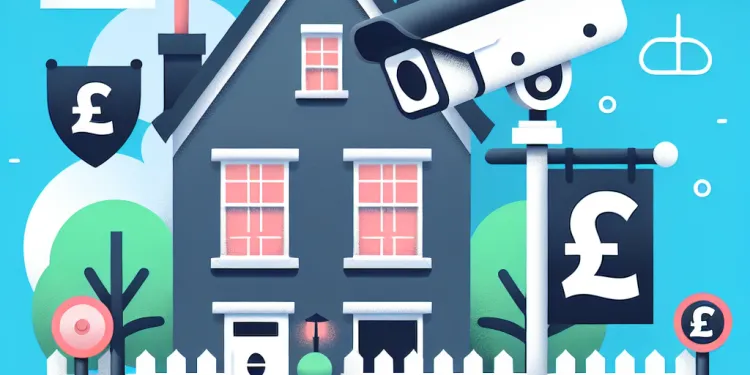
What steps can I take if my neighbour refuses to reposition their security camera?
Relevance: 65%
-
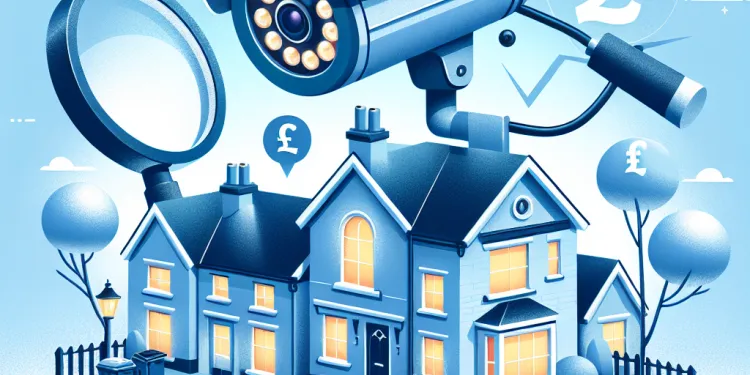
Can my neighbour use footage from their security camera as evidence in disputes?
Relevance: 62%
-

How can I tell if a security camera is pointing at my property?
Relevance: 61%
-
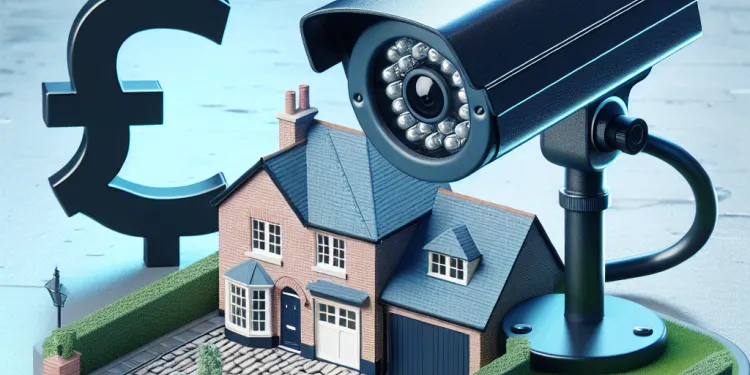
Is my concern valid if the camera is only monitoring my driveway?
Relevance: 58%
-
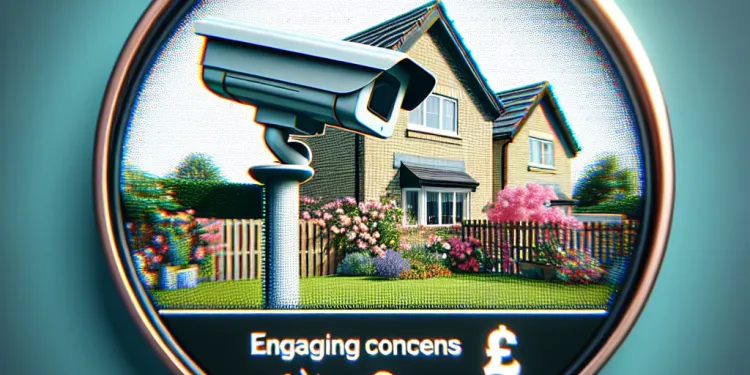
What should I do if I feel my privacy is being invaded by my neighbour's CCTV?
Relevance: 56%
-

What happens if a neighbor builds a fence on my property?
Relevance: 53%
-
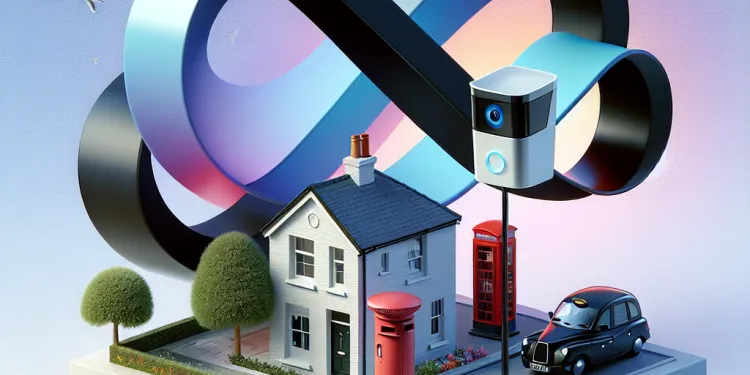
Can a Ring Doorbell Camera record continuously?
Relevance: 53%
-

How can I disable my neighbour's security camera?
Relevance: 52%
-
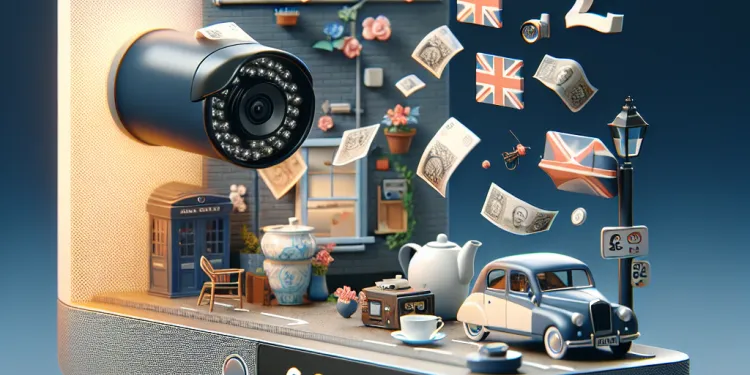
Can I install my own camera to monitor the area in question?
Relevance: 51%
-
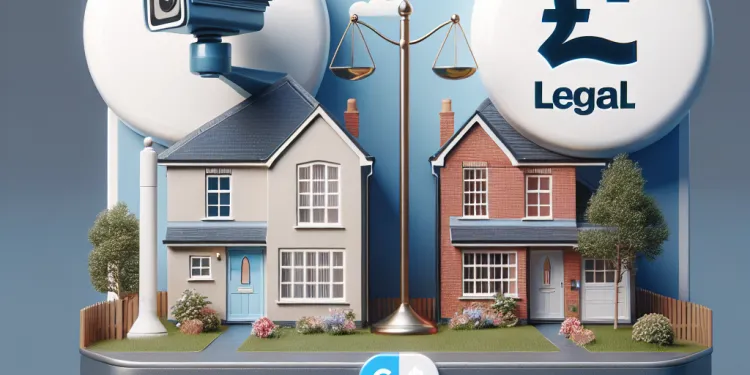
Can the police access my neighbour’s CCTV footage without consent?
Relevance: 45%
-

Is it advisable to discuss camera placement before it becomes an issue?
Relevance: 44%
-
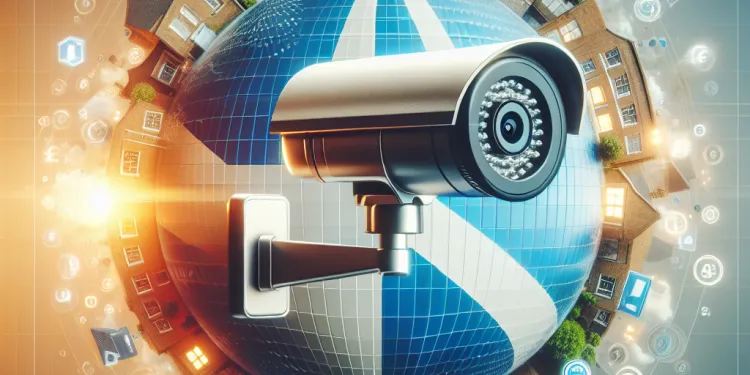
Is redirecting a security camera a solution?
Relevance: 42%
-
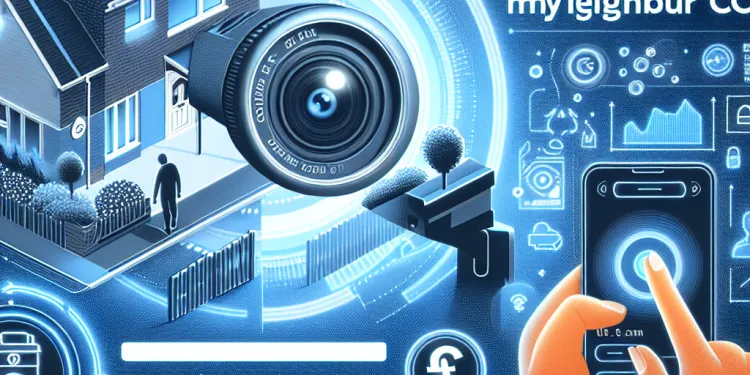
Can I request footage of myself from my neighbour's CCTV?
Relevance: 42%
-
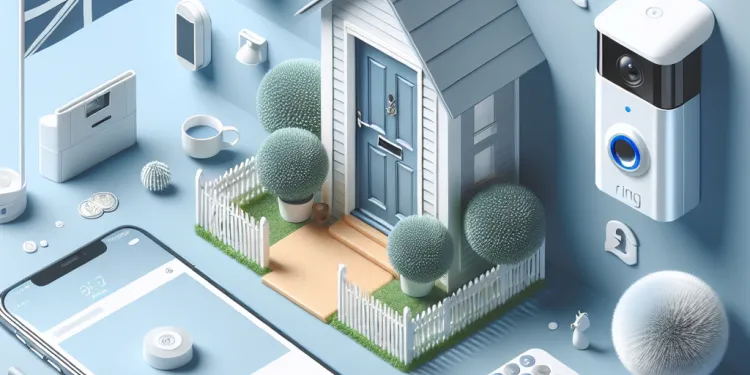
How do Ring Doorbell Cameras work?
Relevance: 39%
-
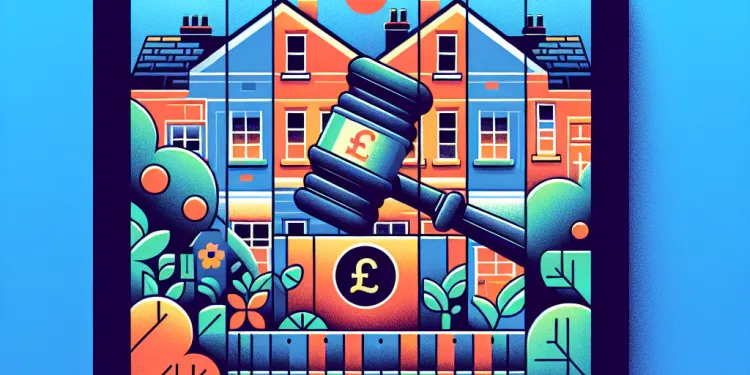
Does the ICO have the power to take action against my neighbour?
Relevance: 39%
-

How important is a property survey in preventing boundary disputes?
Relevance: 38%
-

How secure is the Ring Doorbell Camera system?
Relevance: 38%
-
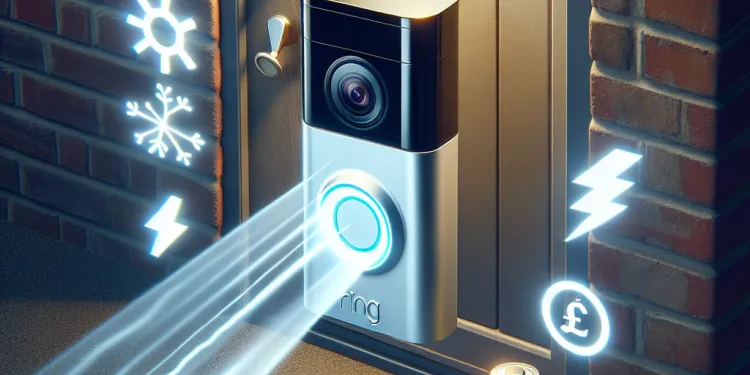
How does a battery-powered Ring Doorbell Camera work?
Relevance: 37%
-
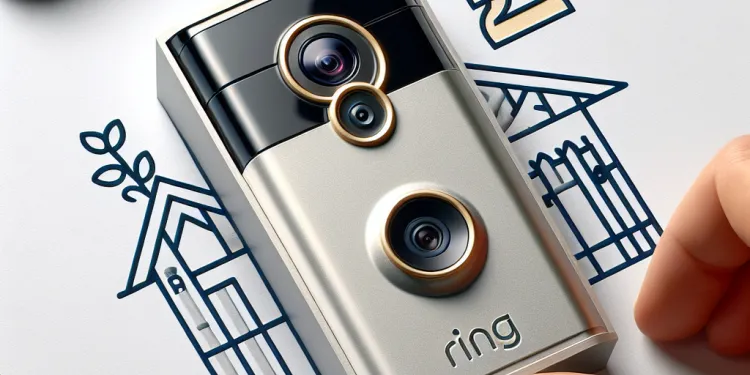
What is a Ring Doorbell Camera?
Relevance: 36%
-
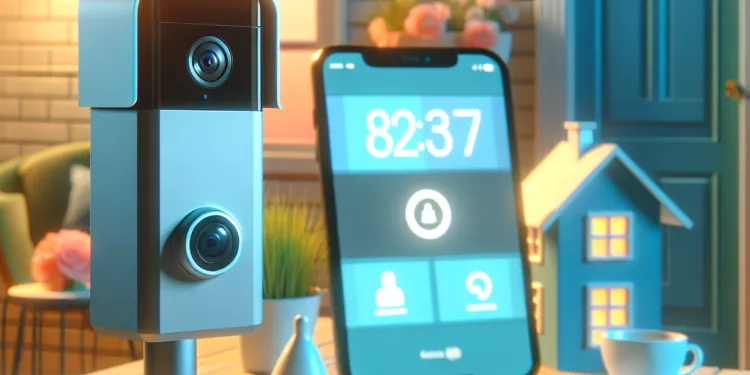
What happens if my Ring Doorbell Camera is stolen?
Relevance: 36%
-
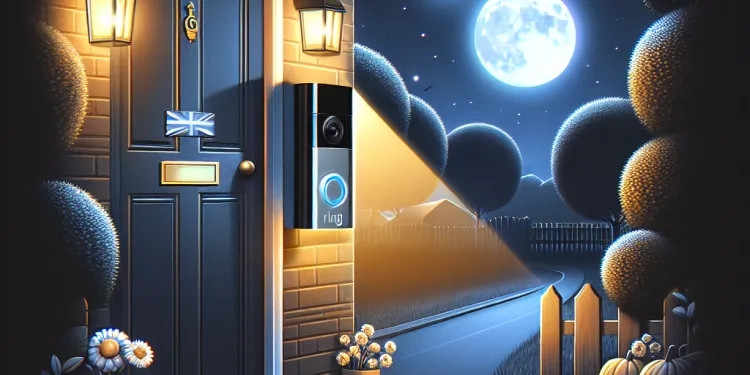
Does a Ring Doorbell Camera work at night?
Relevance: 35%
-
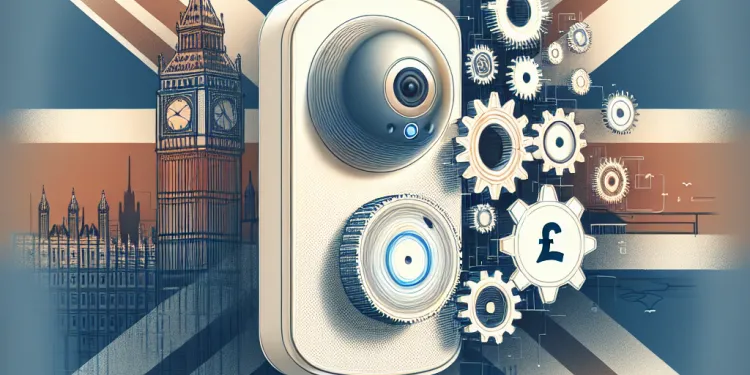
Can I customize motion detection on my Ring Doorbell Camera?
Relevance: 34%
-

Can technology help in blocking the camera's view?
Relevance: 34%
-
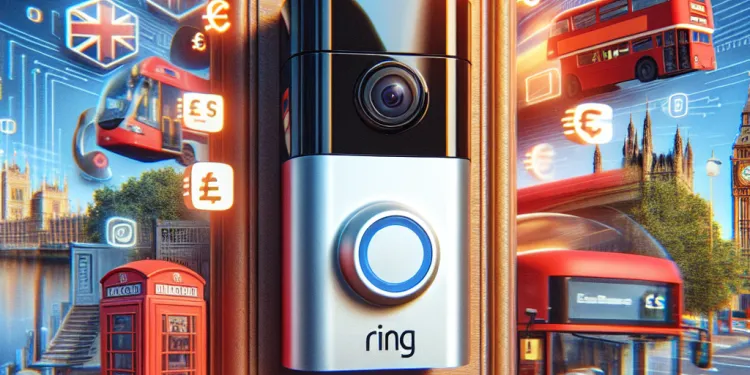
How does a Ring Doorbell Camera work?
Relevance: 34%
-

Is it necessary to check on neighbors during a heatwave?
Relevance: 34%
-

What is my neighbour required to do under GDPR?
Relevance: 33%
Understanding the Legal Framework
In the UK, the use of CCTV and other surveillance systems by private individuals, including your neighbours, is governed by the Data Protection Act 2018 and the UK General Data Protection Regulation (GDPR). These laws regulate how personal data can be collected, used, and stored. If a neighbour's camera records footage beyond their own property boundaries and potentially captures images of your property, it may affect your privacy rights under these regulations.
Obligations of Your Neighbours
Your neighbours do not have a specific legal obligation to inform you that their CCTV system is capturing footage of your property. However, they must comply with data protection laws if their cameras record areas beyond their property, like your driveway or garden. According to the Information Commissioner's Office (ICO), if CCTV systems are installed in a way where they record beyond their premises, the operators should ensure they comply with the Data Protection Act.
Best Practices and Privacy
While there's no explicit legal requirement for neighbours to notify you directly, best practices suggest transparency. It is advisable for neighbours to inform those who might be recorded and put up visible signage indicating that CCTV is in use. The ICO recommends that CCTV operators, even private individuals, conduct a privacy impact assessment to evaluate the necessity and impact of their surveillance.
Your Rights as a Property Owner
If you believe that your neighbours' CCTV system unlawfully infringes upon your privacy rights, you are entitled to take certain actions. You can approach your neighbour to discuss your concerns and ask them to redirect the cameras or adjust their systems to respect your privacy. You may also request access to footage in which you believe you appear, a right protected under data protection laws. If this request is denied or if your privacy concerns are not adequately addressed, you can file a complaint with the ICO, which has the authority to investigate such matters.
Steps to Resolve Issues
If conversations with your neighbour do not lead to a satisfactory resolution, consider mediation services to amicably resolve the dispute. Legal advice from professionals experienced in data protection laws can provide further clarity on your rights and remedial measures. Additionally, documenting your concerns and any communications with your neighbour can be useful if the situation escalates to a formal complaint process.
Conclusion
While your neighbours might not be legally required to inform you if their cameras record your property, the nuances of data protection laws aim to balance surveillance needs and privacy rights. Open communication and understanding of each other's rights and responsibilities can often preempt and resolve potential disputes over CCTV usage. Always remain informed about evolving legal standards and seek professional advice if needed.
Understanding CCTV Laws
In the UK, there are rules about using cameras like CCTV. These rules are called the Data Protection Act 2018 and the UK General Data Protection Regulation (GDPR). These rules say how people can collect, use, and keep your personal information. If your neighbour's camera shows more than just their own garden and records your home too, it might affect your privacy.
What Neighbours Must Do
Your neighbours don't have to tell you if their CCTV captures your property. But, if their cameras see outside their own area, like your driveway or garden, they have to follow the data protection rules. There's an office called the Information Commissioner’s Office (ICO) that says people should follow these rules if their cameras record other places.
Good Habits and Keeping Things Private
Even though there’s no rule to make neighbours tell you about their cameras, it’s a good idea if they do. They should let people know if they might be recorded and use signs to say cameras are there. The ICO thinks people with cameras should check if they really need them and see how it affects others.
Your Rights with Cameras
If you think your neighbour’s camera is not fair to your privacy, you can do something. You can talk to your neighbour and ask them to change where the camera looks. You can also ask to see any video you think you are in. This is your right. If they say no or don’t fix the problem, you can tell the ICO. The ICO can look into it.
How to Fix Problems
If talking to your neighbour doesn’t solve the problem, you can try mediation services. This means someone helps you both come to an agreement. You can also get advice from a lawyer who knows about data protection. Keep notes of what you've talked about with your neighbour in case you need to make a formal complaint.
Conclusion
Your neighbours might not have to tell you if their cameras see your home, but the law tries to protect both safety and privacy. Talking openly can help stop problems before they start. Stay updated on the rules and ask for help if you need it.
Frequently Asked Questions
Do my neighbors need to inform me if their security cameras record my property?
In many jurisdictions, neighbors are not legally required to inform you if their security cameras inadvertently record your property as long as the recording is not being used for voyeuristic purposes or to infringe on your privacy unlawfully.
Can I ask my neighbors to redirect their camera if it records part of my property?
Yes, you can certainly ask your neighbors to adjust their camera's angle to avoid capturing your property. They may be willing to cooperate if approached politely.
What steps can I take if I feel my privacy is being invaded by a neighbor’s camera?
You can attempt to resolve the issue by discussing it with your neighbor first. If that fails, you might consider checking local laws and potentially speaking with a legal professional to understand your rights.
Is it legal for my neighbor to have a camera that captures my backyard?
While the legality can depend on jurisdiction, generally, as long as the camera is not being used to deliberately invade your privacy, it may not be illegal. However, it's always good to confirm based on your local laws.
Are there laws that protect my privacy from being recorded by neighbors?
Many regions have laws protecting individuals from privacy invasion. It's important to check the specific laws in your area to understand the protections available related to security cameras.
Can a neighbor use footage of my property against me?
Using footage against someone can vary in legality depending on context and local laws. If the footage is being used maliciously, it could potentially be a legal concern.
What should I do if my neighbor refuses to remove or adjust their camera?
If a neighbor refuses to cooperate, you may need to seek mediation or legal advice to explore your options for addressing the situation.
Can installing my camera pointing at my property deter neighbors from recording?
Installing your own cameras is a potential deterrent, but it does not necessarily legally prevent neighbors from recording. Open communication is usually the best initial approach.
Do I have a right to view footage recorded by my neighbor’s camera that includes my property?
Generally, you don't have the right to demand access to your neighbor's security footage unless it involves legal proceedings or agreements between parties.
Can I file a complaint if my neighbor's camera records parts of my property?
Yes, you can file a complaint if you believe your privacy rights are being breached, but it’s advisable to first try a peaceful resolution with your neighbor.
What legal recourse do I have regarding unwanted surveillance by a neighbor?
Legal recourse can vary by area, but options may include reporting to local authorities or seeking a court order if your privacy rights are infringed upon.
Is it common for neighbors to discuss camera placement and coverage?
While not common practice everywhere, discussing camera placement can help prevent misunderstandings and maintain a good neighborhood relationship.
Can a neighbor legally record the front of my house?
Typically, recording areas in plain view, like the front of a house visible from a public area, is considered legal. Recording private areas without consent may be more contentious.
Are there ethical considerations for camera installation that neighbors should follow?
Yes, ethical considerations include aiming cameras to minimize capturing private areas of neighboring properties and informing neighbors if necessary.
What could be signs my privacy is being violated by a neighbor’s camera?
Signs might include cameras explicitly pointing directly into your private areas or being used to monitor you rather than for legitimate security purposes.
If my property is recorded, can I demand that footage be deleted?
You may request deletion, but neighbors are not typically required to comply unless there’s a court order or similar legal obligation.
Can mediation help resolve disputes over camera recordings?
Yes, mediation can be an effective way to resolve disputes without escalating to legal action, especially if both parties are willing to cooperate.
Do security camera laws vary significantly by region?
Yes, security camera laws can vary greatly depending on local, state, or national regulations, making it important to understand the laws applicable in your area.
Can homeowners' associations regulate neighbor camera usage?
Homeowners' associations may have rules concerning camera use and placement, but this can vary based on the association's bylaws or governing documents.
How can discussing security concerns help prevent issues with cameras and privacy?
Open discussion around security concerns can help align expectations and prevent misunderstandings, fostering mutual respect for privacy and security needs.
Do my neighbors have to tell me if their cameras can see my house?
If your neighbors have cameras that can see your home, it's good to talk with them. You can ask them about it. Talking can help everyone feel better.
You can also ask someone you trust for help, like a friend or family member. They can help you talk to your neighbors.
Writing things down on paper or drawing a picture can help you understand what to say. It is also helpful to practice what you want to ask.
Most places have rules about cameras. If your neighbor's camera can see your house, they don't have to tell you. But they can't use the camera to spy on you or break the law.
Can I ask my neighbors to move their camera if it shows my home?
If your neighbors have a camera, and it shows part of your home or garden, you can talk to them. Ask them nicely if they can move the camera. You can say, "I see your camera is showing some of my home. Can you point it somewhere else, please?"
If talking is hard, you can write a note or ask someone you trust to help you. You can also use simple signs to show where you want the camera to point instead.
You can ask your neighbors to move their camera so it does not point at your house. If you ask nicely, they might help you.
What can I do if my neighbor's camera is watching me?
If you think your neighbor's camera is looking at you and you do not like it, here are some things you can do:
Talk to Your Neighbor: You can try talking to your neighbor. Tell them how you feel and ask if they can move the camera.
Put Up a Fence or Plants: You can put up a fence or grow some tall plants to keep your space private.
Ask for Help: You can ask a family member or friend to help you talk to your neighbor.
Write a Letter: If talking is hard, you can write a letter to your neighbor instead.
Contact Authorities: If nothing works, you can ask the local police or a community help group for advice.
These steps can help you feel more comfortable in your space.
Try talking to your neighbor to fix the problem. If that doesn't help, you can look at local rules or ask a lawyer what you can do.
Can my neighbor have a camera that sees my backyard?
Is it okay for my neighbor to have a camera that looks at my backyard?
To learn more, you can ask an adult, a friend, or someone who knows about laws.
Whether it is legal or not can change in different places. Usually, if the camera is not used to spy on you, it might be okay. But, it's important to check the laws where you live.
Do laws stop neighbors from recording me?
Lots of places have rules to keep people safe from having their privacy invaded. It's important to look up the rules where you live to know how security cameras can be used.
Can a neighbor use videos of my home to get me in trouble?
Your neighbor might have a camera or phone. They could record videos of your house.
If you think this isn't fair, talk to someone you trust. They can help you understand what to do next.
Using pictures or videos without asking can be wrong. A grown-up can help you ask about the law.
If you feel unsure, try using drawing or notes to show how you feel. It might make it easier to talk about.
Using video of someone can be okay or not okay. It depends on the rules where you live. If you use the video to be mean to someone, it might be against the law.
What can I do if my neighbor won't move their camera?
If your neighbor does not want to help you solve the problem, you might need to ask someone to help talk things over. You can also talk to a lawyer to find out what to do next.
Will putting a camera on my home stop neighbors from recording?
Putting a camera on your house might help stop your neighbors from recording you. When they see your camera, they might not want to record on your property. It can help them understand you want privacy.
If this feels tricky, you can ask someone to help you. You can also talk to your neighbors. Tell them why you are putting up your camera.
Putting up your own cameras can help stop problems, but it might not stop your neighbors from recording. Talking to your neighbors is usually the best first step.
Can I see videos from my neighbor's camera that show my house?
You usually can't ask to see your neighbor's security camera videos. You can only do this if a court or a special agreement says you can.
Can I tell someone if my neighbor's camera is recording my yard?
If your neighbor's camera is watching your home or yard, you can ask for help.
Here are some things you can do:
- Talk to your neighbor. Tell them you do not like their camera watching your space.
- Ask a grown-up or a friend to help you talk to your neighbor.
- You can also tell the police or someone in charge if you are still worried.
Remember, it is okay to ask for help!
Yes, you can complain if you think your privacy is being broken. But it is a good idea to first talk to your neighbor and try to fix it nicely.
What can I do if my neighbor is spying on me?
If you think your neighbor is watching you and you don't like it, you can get help. Here are some things you can try:
- Talk to your neighbor: Sometimes, just talking can help fix things.
- Put up a fence or curtains: This can stop them from looking in.
- Ask for help: You can talk to a group that helps people in your area.
- Get legal advice: Some lawyers can tell you what to do next.
There are people and tools that can help you feel safe at home. Don't be afraid to ask for help.
If someone breaks your privacy rules, you can tell the police or ask a judge for help. Different places have different rules, so find out what you can do where you live.
Do neighbors often talk about where to put cameras?
Neighbors sometimes talk about where to put cameras around their houses. Talking can help them feel safe and respect each other's privacy. They can agree on where cameras can see.
Using tools like maps or pictures can help neighbors see how cameras work. They can also write or draw their ideas to understand better.
It is nice to talk about where you put cameras. This helps everyone in the neighborhood get along and avoid confusion.
Can my neighbor take videos or pictures of the front of my house?
Sometimes neighbors might want to take video or pictures of your home.
If you feel unsure or worried, you can:
- Ask them why they are taking pictures or videos.
- Talk to them about how it makes you feel.
- Ask someone you trust for help, like a family member or a friend.
- Contact local community support for advice.
It is usually okay to record things you can see from a public place, like the front of a house.
But if you want to record private places, you need to ask for permission first.
You can use picture books, simple videos, or apps with voice tools to help understand better.
Should neighbors think about right and wrong when putting up cameras?
When you use cameras, you should try not to point them at private parts of your neighbor's house or yard. If you need to, you can tell your neighbors about the cameras.
How can I tell if my neighbor’s camera is looking into my space?
Here are some ways to know if your privacy is not safe: - The camera is pointed at your windows or yard. - You notice the camera follows when you move. - You feel like someone is watching you when you are outside. If you think the camera is spying on you, here are some things you can do: - Talk to your neighbor about it. - Put up curtains or blinds to block the view. - Ask someone you trust for help. Remember, it's okay to ask for help if you feel unsafe.Look out for cameras pointing right at your private space. They might be used to watch you instead of being there for security reasons.
Can I ask for videos of my home to be erased?
You can ask for something to be taken away, but neighbors usually don’t have to do it unless a judge says so or there is a legal rule.
Can mediation help solve arguments about camera recordings?
Mediation is when a person who is not part of the argument helps people talk and agree.
If people are arguing about what is on a camera, mediation can help them find a way to agree without fighting.
Using tools like a calm place to talk and paper to write notes can help everyone understand each other better.
Yes, mediation can help people solve problems without going to court. It works well if everyone wants to work together.
Are the rules for security cameras different in each area?
Yes, the rules for security cameras can be different in each place. It's important to know the rules where you live.
Can homeowner groups tell you where to put cameras?
Homeowners' groups sometimes have rules about where you can put cameras and how you use them. These rules can be different, depending on what the group's rulebook says.
How can talking about safety stop problems with cameras and privacy?
When we talk about safety, we can find out what worries people. This helps us keep cameras and private things safe.
Tip: Use simple words and short sentences when talking about safety.
Tool: Try using pictures to show how to stay safe.
Talking openly about safety worries is good. It helps everyone understand and get along better. People can learn to respect each other’s privacy and safety needs.
Useful Links
Have you found an error, or do you have a link or some information you would like to share? Please let us know using the form below.
-->
This website offers general information and is not a substitute for professional advice.
Always seek guidance from qualified professionals.
If you have any medical concerns or need urgent help, contact a healthcare professional or emergency services immediately.
Some of this content was generated with AI assistance. We’ve done our best to keep it accurate, helpful, and human-friendly.
- Ergsy carfully checks the information in the videos we provide here.
- Videos shown by Youtube after a video has completed, have NOT been reviewed by ERGSY.
- To view, click the arrow in centre of video.
- Most of the videos you find here will have subtitles and/or closed captions available.
- You may need to turn these on, and choose your preferred language.
- Go to the video you'd like to watch.
- If closed captions (CC) are available, settings will be visible on the bottom right of the video player.
- To turn on Captions, click settings .
- To turn off Captions, click settings again.
More Items From Ergsy search
-

Do neighbours need to inform me if their cameras record my property?
Relevance: 100%
-

What if my neighbor claims the camera is for security but it points towards my property?
Relevance: 83%
-

Is it legal for my neighbor to have a security camera facing my property?
Relevance: 81%
-

What should I do first if my neighbor's security camera is pointed at my property?
Relevance: 80%
-

How can I stop my neighbour's security camera pointing at my property?
Relevance: 80%
-

Can my neighbour legally point a security camera at my property?
Relevance: 80%
-

What can I do about my neighbour's security camera?
Relevance: 73%
-

Can I ask my neighbour to reposition their security camera?
Relevance: 72%
-

Is it legal for me to block the view of my neighbour's security camera?
Relevance: 72%
-

What can I do about my neighbour's security camera?
Relevance: 71%
-

Are there privacy laws that protect me from neighbor's cameras?
Relevance: 70%
-

Can I ask for legal help to get my neighbor’s camera moved?
Relevance: 66%
-

Can I block the view of my neighbor's camera with physical barriers?
Relevance: 66%
-

Should I contact the authorities if my neighbor refuses to adjust their camera?
Relevance: 65%
-

What steps can I take if my neighbour refuses to reposition their security camera?
Relevance: 65%
-

Can my neighbour use footage from their security camera as evidence in disputes?
Relevance: 62%
-

How can I tell if a security camera is pointing at my property?
Relevance: 61%
-

Is my concern valid if the camera is only monitoring my driveway?
Relevance: 58%
-

What should I do if I feel my privacy is being invaded by my neighbour's CCTV?
Relevance: 56%
-

What happens if a neighbor builds a fence on my property?
Relevance: 53%
-

Can a Ring Doorbell Camera record continuously?
Relevance: 53%
-

How can I disable my neighbour's security camera?
Relevance: 52%
-

Can I install my own camera to monitor the area in question?
Relevance: 51%
-

Can the police access my neighbour’s CCTV footage without consent?
Relevance: 45%
-

Is it advisable to discuss camera placement before it becomes an issue?
Relevance: 44%
-

Is redirecting a security camera a solution?
Relevance: 42%
-

Can I request footage of myself from my neighbour's CCTV?
Relevance: 42%
-

How do Ring Doorbell Cameras work?
Relevance: 39%
-

Does the ICO have the power to take action against my neighbour?
Relevance: 39%
-

How important is a property survey in preventing boundary disputes?
Relevance: 38%
-

How secure is the Ring Doorbell Camera system?
Relevance: 38%
-

How does a battery-powered Ring Doorbell Camera work?
Relevance: 37%
-

What is a Ring Doorbell Camera?
Relevance: 36%
-

What happens if my Ring Doorbell Camera is stolen?
Relevance: 36%
-

Does a Ring Doorbell Camera work at night?
Relevance: 35%
-

Can I customize motion detection on my Ring Doorbell Camera?
Relevance: 34%
-

Can technology help in blocking the camera's view?
Relevance: 34%
-

How does a Ring Doorbell Camera work?
Relevance: 34%
-

Is it necessary to check on neighbors during a heatwave?
Relevance: 34%
-

What is my neighbour required to do under GDPR?
Relevance: 33%


